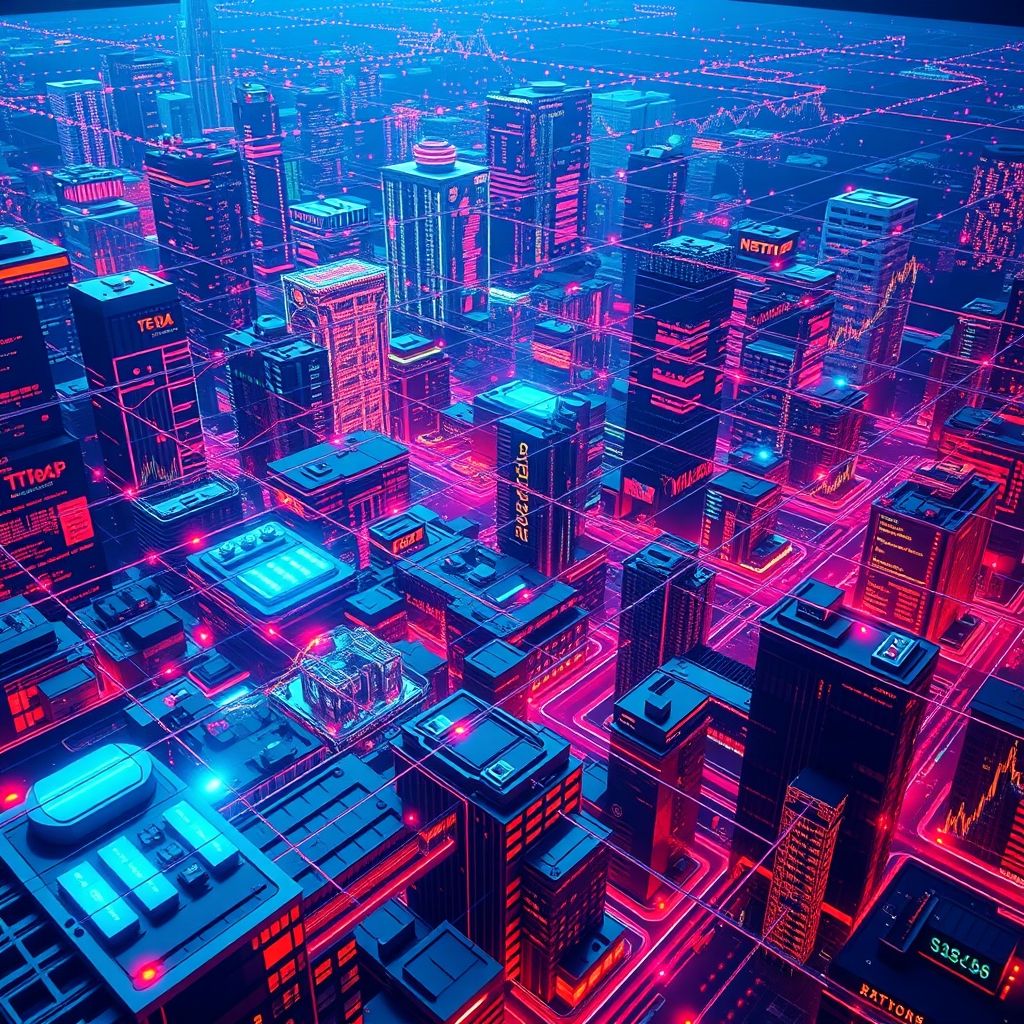How do smart contracts facilitate decentralized derivatives transactions?
How Smart Contracts Revolutionize Decentralized Derivatives Trading
Imagine a world where traders can jump into complex financial instruments like options, futures, or commodities without relying on huge banks or centralized exchanges. Instead, they leverage blockchain technology—trustless, transparent, and programmable—to make these deals happen automatically, securely, and globally. That’s where smart contracts come into play, turning what once seemed like a tech-heavy dream into an accessible reality for crypto and traditional asset traders alike.

Unlocking the Power of Automation and Trust in Derivatives
Smart contracts are self-executing agreements coded on blockchains—think of them as digital escrow agents that don’t need middlemen. When it comes to decentralized derivatives, this means trades can be embedded directly into the blockchain, removing the need for a third-party clearinghouse and drastically reducing counterparty risk. For example, if you’re bullish on Bitcoin but want to hedge your position with a decentralized options contract, a smart contract can automatically execute the trade when predefined conditions are met—say, if BTC’s price hits a specific target.
This automation not only reduces delays but also cuts costs. No more waiting days for settlement from a centralized platform, and no more hefty fees associated with intermediaries. Plus, transparency is baked into the system—everyone can verify the contract code and transaction history, making shady dealings much harder.
Features That Elevate Decentralized Derivatives
-
Programmability & Customization: Unlike traditional contracts, smart contracts can be tailored to complex strategies—multi-leg options, basket trades, or exotic derivatives—allowing traders to craft precise hedge or speculation tools. Platforms like Synthetix and dYdX are already offering such functionalities.
-
Global Accessibility & 24/7 Trading: Blockchain isn’t bound by country borders or business hours. Anyone with an internet connection can participate in derivatives markets, whether theyre trading forex, stocks tokenized on-chain, or cryptocurrencies—no need for a broker or a bank account.
-
Automatic Settlement & Margin Management: With smart contracts, margin levels can be monitored and adjusted in real-time, reducing liquidation risks and improving capital efficiency. Traders can even set custom leverage strategies based on their risk appetite, all coded into the contract.
-
Immutable & Transparent History: Every transaction and adjustment gets recorded on the blockchain, creating an audit trail. This transparency boosts user confidence, especially for institutions considering DeFi derivatives.
Advantages Over Traditional Markets
When you compare decentralized derivatives trading enabled by smart contracts to traditional setups, the benefits are compelling. You get direct access to liquidity pools, no counterparty default worries, and—critically—greater privacy since transactions are pseudonymous. Plus, during periods of high volatility, the automated execution prevents manual errors and emotional trading fads, helping maintain discipline.
But it’s not perfect. Smart contracts depend on the quality and security of their code. A bug or vulnerability could lead to losses—think of the hot wallet exploits or oracle failures that made headlines. So, rigorous audits and diversification into reputable platforms matter.
The Future: AI, Advanced Assets, and New Challenges
Imagine combining the power of smart contracts with AI-driven trading signals. Algorithms could assess market data in real-time, suggest optimal hedge strategies, or even execute trades autonomously—effectively creating a semi-intelligent, self-optimizing derivatives ecosystem. Add layered security protocols and multi-signature wallets, and you start to see a future where decentralized derivatives are safer, smarter, and more adaptive.
As more traditional assets—like stock options or commodities—are tokenized, the scope widens. Traders will no longer be confined to stocks or crypto; they’ll navigate indices, forex, or gold through smart contract-based derivatives, all within a global, permissionless trade environment.
Yet, hurdles remain—regulatory uncertainty, scalability issues, and the need for standardization. As we push forward, collaboration between blockchain projects, regulators, and financial institutions will be key to ensuring these innovations grow sustainably.
Looking Ahead: The Rise of Self-Executing, AI-Enhanced Finance
Smart contracts are no longer just a buzzword—they’re the backbone of a new wave in finance, where transparency, automation, and decentralization lead the charge. When integrated with AI, the potential expands exponentially—predictive analytics, auto-lagging strategies, risk management, all automated and executed on trustless platforms.
The promise? A financial landscape that’s faster, fairer, and more inclusive—where anyone can participate in sophisticated derivatives markets without the need for traditional intermediaries. All this points to a future where decentralized finance isn’t just a niche but the new normal—powered by smart contracts and AI, shaping the next paradigm of trading.
“Decentralized derivatives—where trust, automation, and innovation collide to shape the future of finance.”